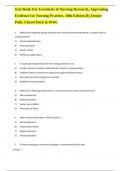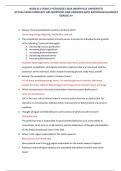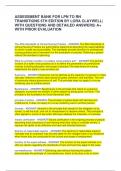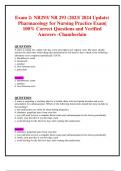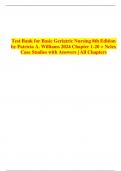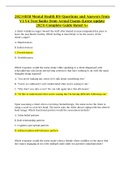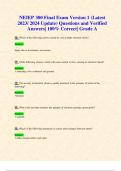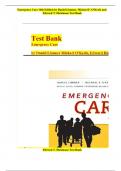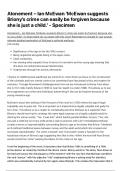Exam (elaborations)
Test Bank For Essentials of Nursing Research, Appraising Evidence for Nursing Practice, 10th Edition By Denise Polit, Cheryl Beck (LWW)
- Course
- Institution
Test Bank For Essentials of Nursing Research, Appraising Evidence for Nursing Practice, 10th Edition By Denise Polit, Cheryl Beck (LWW)
[Show more]
